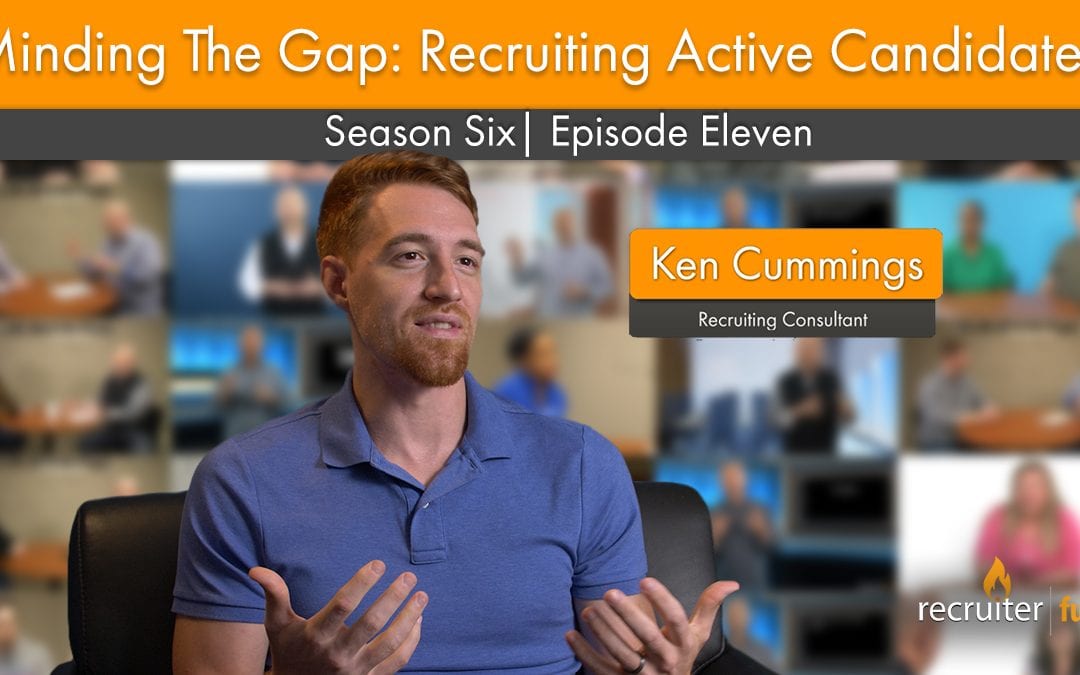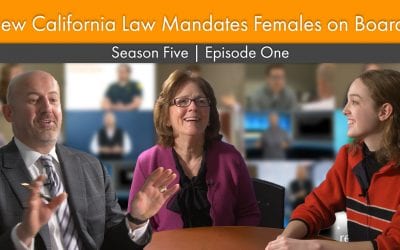
Season 6| Episode 11
Minding the Gap: Recruiting Active Candidates
Active candidates bring a different set of priorities and challenges to the table for recruiters. If you’re unfamiliar with this terminology, active candidates refer to someone who is actively seeking new job opportunities.
While it may be easier to place these individuals in a role, there are some unique considerations to keep in mind. We sat down with one of our senior technical recruiters, Ken Cummings, to learn more about how to navigate these scenarios.
“What are the Differences Between Active and Passive Candidates?”
“An active candidate is someone typically that is unemployed who is seeking to get back into employment rather quickly because they need income. So what ends up happening with that individual is that they’re a little bit more tricky to peg down. With a passive candidate you kind of know what you’re looking for. It’s a lot easier to have conversations about their needs and wants, versus an active candidate who may veil their needs or wants in order to obtain a position a little bit more quickly.”
“They may forego the perfect fit for themselves just to get back to employment.”
“What is Your First Thought When You See an Employment Gap?”
“My first thought when I see an employment gap is…red flag for sure. It doesn’t mean that they’re not redeemable, but there’s definitely some exploratory conversations to be had about that gap.”
“It’s not something that has a big impact on their candidacy.”
“What’s an Example of a Good Explanation for the Gap?”
“Maybe they had to take a leave of absence for medical reasons. I’ve had that happen in a few circumstances, and that’s very reasonable. We have things in our lives beyond our control, and oftentimes those situations arise when we don’t want them to.”
“Maybe they get pretty far into a field and realize they have more interest in another field, and oftentimes they have to take some time to leave the current field that they’re in, develop themselves and prepare themselves for the skills they’ll need in the new field. Those are great explanations as well.”
“What’s an Example of a Bad Explanation for the Gap?”
“I had an individual that I was recruiting for an opportunity who shared with me his employment gap. His explanation was, when he was working for his current company, they didn’t approve his PTO and so he had this vacation that he wanted to take, and he decided to quit that company just so he could take his vacation.”
“When I asked him…how come it took you so long to find another role? He said well, every time I try to explain why I left my last position, no one gave me an opportunity.”
“Say the company previously closed, or they were offered a buyout of their position. And this happened a lot in 2007 and 2008 with General Motors...most of those people took the buyout and then immediately found employment elsewhere. But there were a few who took the buyout and remained unemployed for many years, and it became very challenging for those individuals to find employment because the gap had gotten so wide. It tended to reflect poorly on them and their motivation for working.”
“That’s what you’ve really gotta consider when you’re going to leave a position – how much time are you going to take to find another role?”
“Otherwise it can really typecast you, fairly or unfairly.”
“Are There Times When a Gap Could Serve a Candidate Well?”
“There are times when a gap could potentially serve a candidate pretty well. A few examples would be continued education, changing career fields, going and doing self-improvement. Taking workshops or classes, maybe not necessarily going to university to obtain new skill sets but learning a new field.”
“In high stress job situations, and there are many of those out there, oftentimes you need some time to really take a sabbatical and recharge your batteries, collect yourself, before you enter back in.”
“How Long of an Unemployment Gap is Too Long?”
There’s a threshold in my mind, of how much is too much of a gap. If the explanation doesn’t sync up with that, it does make it really challenging. But I’m not saying you’re not redeemable. In fact, one of the best placements I’ve ever had was someone who took the buyout from the job, also ended up getting a divorce in this period of time…and that shifted to a year later, now no one is giving me an opportunity, because it’s been so long.”
“One of the most rewarding moments as a recruiter was taking that individual, working with them, seeing the redeemable qualities…when he got that offer, he couldn’t thank me enough.”
“It’s never about me looking at someone with a gap and saying “no way” – it’s saying “how can I help, and what have they done to help themselves?” And if it makes sense, I’ll absolutely work with them and fight for them just as much as a passive candidate.”
Need more real talk in your life?
You know what to do 😉 →
About Recruiter Fuel
Recruiter Fuel is a weekly video series dedicated to all-things recruiting and talent acquisition. Learn More our mission and how you can submit a topic, be featured in an episode, or nominate an expert to guest star on an upcoming episode.
Visit the Recruiter Fuel series directory for more content.





